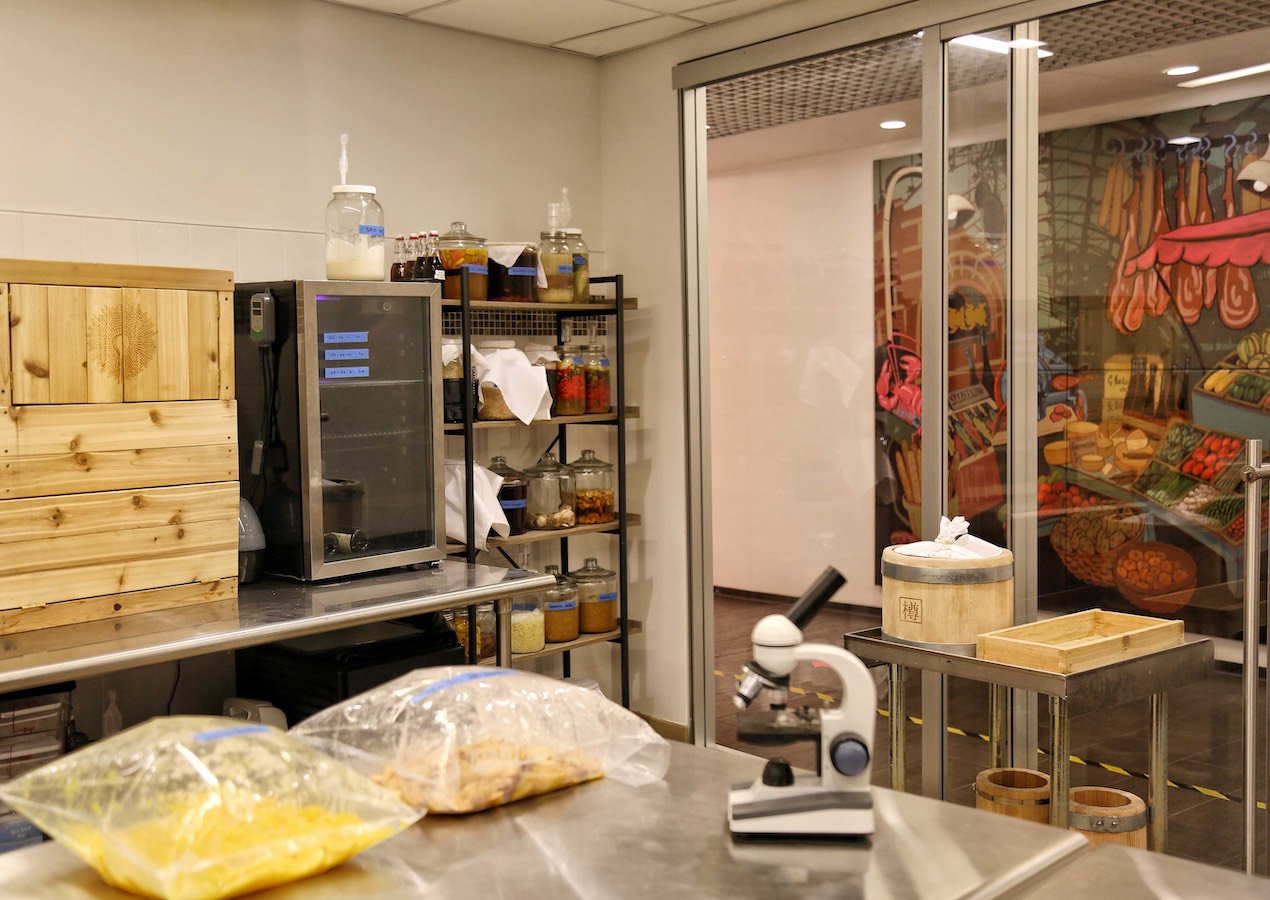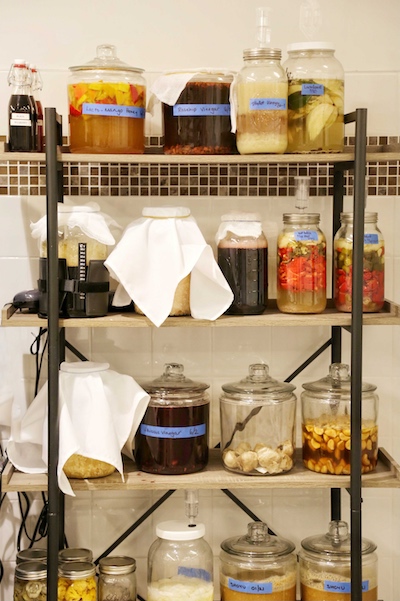Our New York campus has enhanced the bean-to-bar chocolate lab space to include a fermentation lab hosting miso, koji and vinegar experiments among more fermentation exploration.
Director of Culinary Research and Development Barry Tonkinson recently wrote about Noma's early implementation of fermentation to exclusively work with local ingredients and the ultimate impact of that innovation on the restaurant industry internationally. We hosted David Zilber, the former head of the iconic restaurant's fermentation lab, for a virtual event, when he paid homage to many pioneers of the practice and evangelized its potential.
Today, leading restaurants across the country have followed in Noma's footsteps, implementing aging and preservation in the kitchen, often with designated spaces or labs. The techniques are essential in modern cuisine, extending the use of seasonal ingredients, reducing waste, and notably, cultivating flavor and adding umami in a variety of applications.

Likewise, ICE has designated space in our bean-to-bar chocolate lab to expand the fermentation endeavors that have flourished in our culinary technology lab and in the kitchen classrooms.
"Fermentation is a microbial action that makes chemical changes in enzymes, like yeast converting sugars to alcohol or the growth of lactic acid in cucumbers to make pickles," Chef Barry explains. "These are natural processes, such as wine turning to vinegar, but in a controlled environment, we can harness some incredible flavor."
Students at the Institute of Culinary Education study fermentation in Culinary Arts, Health-Supportive Culinary Arts and Pastry & Baking Arts, from preparing sauerkraut, kimchi and pickles, to exploring the health benefits of fermented foods, to all yeasted dough lessons.
 The techniques span bread baking and chocolate making, and fermentation is behind everyday products from cheese and yogurt to beer and wine. Chef Barry is aging cheese in the lab in between a muro inoculating koji and rows of lacto ferments, vinegars, miso and soy sauce. These experiments were conducted in the Culinary Technology Lab for the last few years and now have a designated space to expand.
The techniques span bread baking and chocolate making, and fermentation is behind everyday products from cheese and yogurt to beer and wine. Chef Barry is aging cheese in the lab in between a muro inoculating koji and rows of lacto ferments, vinegars, miso and soy sauce. These experiments were conducted in the Culinary Technology Lab for the last few years and now have a designated space to expand.
"Fermentation is the largest-growing topic in the industry with Noma and Rene Redzepi at the forefront," Chef Barry explains. "Ferments not only utilize product and prevent waste but add new flavors using acidity and umami. This is a fantastic way to promote sustainability on campus and engage students with extracurricular activities."
Aspiring students can experience chocolate making, fermentation and culinary technology on a tour of the campus, and the public can engage with our labs on social media and in professional development classes. Schedule a tour.




